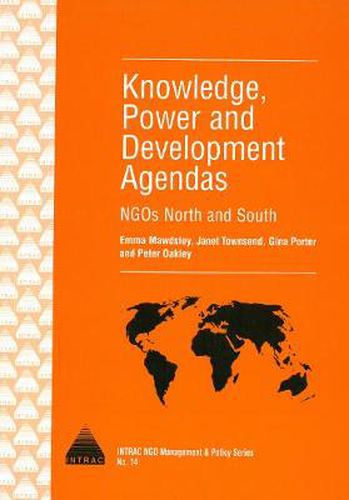Readings Newsletter
Become a Readings Member to make your shopping experience even easier.
Sign in or sign up for free!
You’re not far away from qualifying for FREE standard shipping within Australia
You’ve qualified for FREE standard shipping within Australia
The cart is loading…






Development NGOs North and South now exist in a global web of relationships. Not only money and people but ideas, information and knowledge move more often and more quickly than ever before around this vast, diverse community. Southern NGOs have many ideas and a great deal of information and knowledge, but often have less power to influence what projects and programmes are undertaken, or even how they are done. Ideas may be drawn from the South, but the way in which they are taken up, changed and then re-disseminated is dominated by northern institutions and agendas and by global waves of development fashion. From field research in Ghana, India, Mexico and Europe, this book explores how southern NGOs can have more of a voice in determining the work they actually do, and how they can get more of their ideas on to the international development agenda. From the experiences of small and large NGOs, the book reports on their recommendations for overcoming, challenging or bypassing information loops on funding, ideas and networks.
$9.00 standard shipping within Australia
FREE standard shipping within Australia for orders over $100.00
Express & International shipping calculated at checkout
Development NGOs North and South now exist in a global web of relationships. Not only money and people but ideas, information and knowledge move more often and more quickly than ever before around this vast, diverse community. Southern NGOs have many ideas and a great deal of information and knowledge, but often have less power to influence what projects and programmes are undertaken, or even how they are done. Ideas may be drawn from the South, but the way in which they are taken up, changed and then re-disseminated is dominated by northern institutions and agendas and by global waves of development fashion. From field research in Ghana, India, Mexico and Europe, this book explores how southern NGOs can have more of a voice in determining the work they actually do, and how they can get more of their ideas on to the international development agenda. From the experiences of small and large NGOs, the book reports on their recommendations for overcoming, challenging or bypassing information loops on funding, ideas and networks.